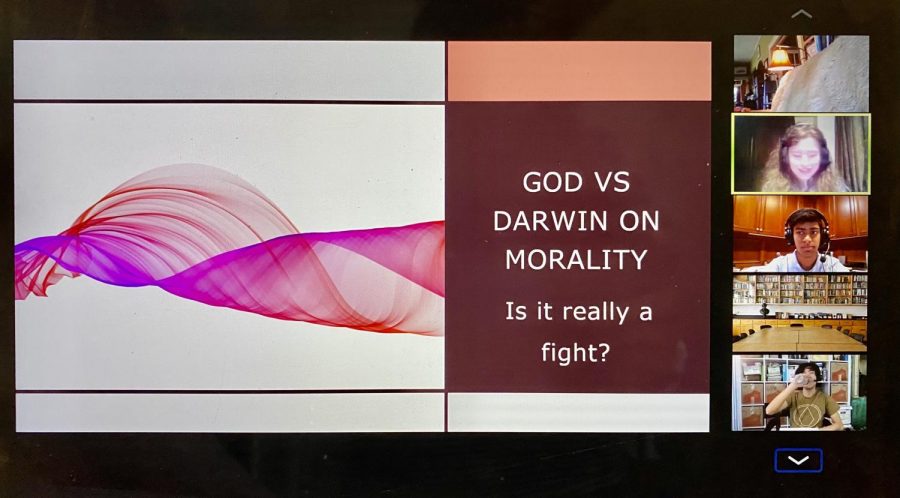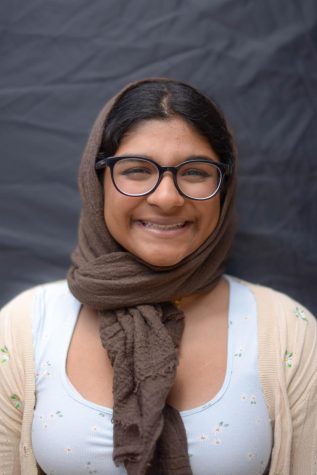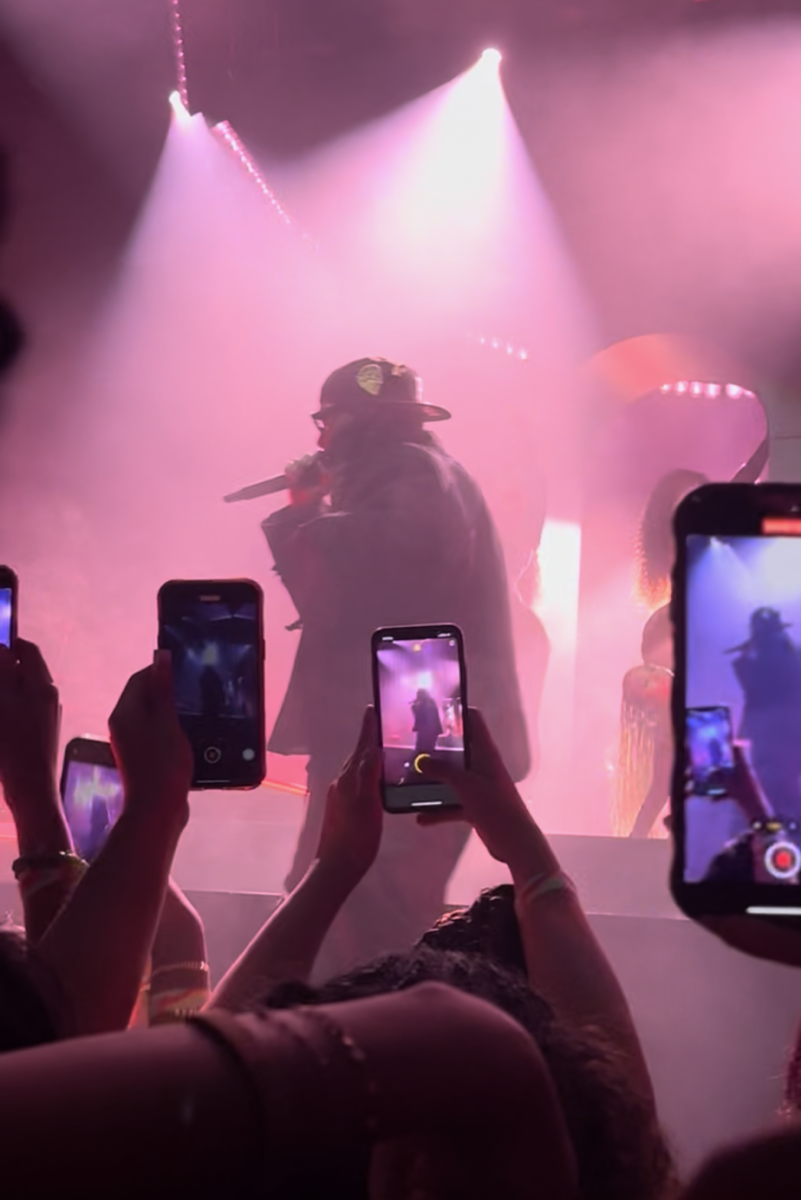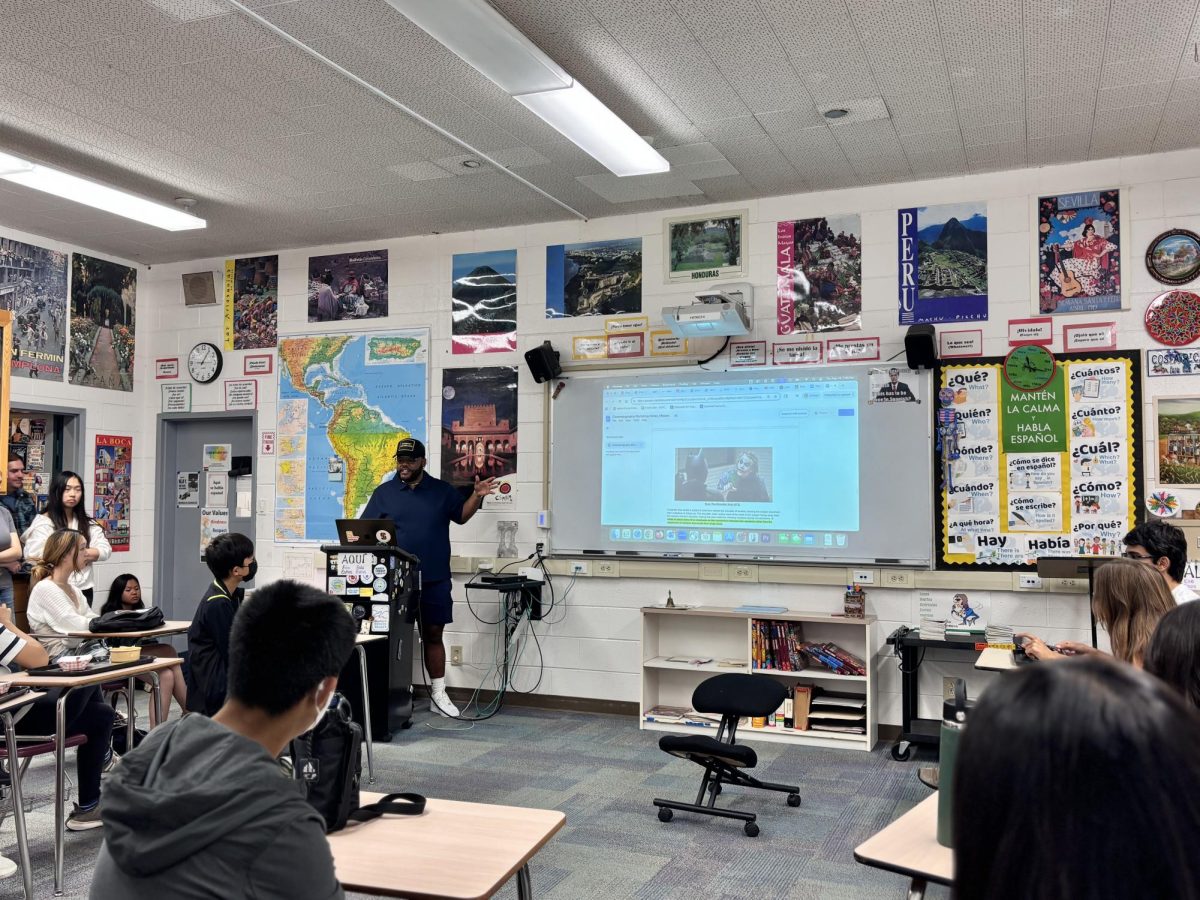Philosophy Club organizes two-day PhilCon event
Professor Michael Ruse, a professor of philosophy from Florida State University, discusses the concepts of evolution in connection to those of human morality. Philcon was held virtually on Oct. 16 and 17.
October 23, 2020
Philosophy club organized this year’s PhilCon, which consisted of various live online talks from their club officers, a former club president, and philosophy professors. 178 high school students attended on Friday Oct. 16, and Saturday Oct. 17, including 27 non-Harker students.
Professor Jeff Behrends, a lecturer of philosophy and the Director of Ethics and Technology Initiatives at Harvard University, began the first talk by examining the interlocking of ethics and regulation in computer technology.
“We ought to care about [ethics in digital technology] because if we get it wrong, we’re bound to get it wrong on a really drastic scale: it’s too powerful,” Behrends said.
Arnav Tandon (‘17) followed, a former Philosophy club president and current senior at Columbia University, discussing friendship in ancient philosophy.
In addition, treasurer Akshay Manglik (12) discussed the philosophy behind “Among Us,” an online game, president Sophia Gottfried (12) discussed the theories of Nihilism, Existentialism, and Absurdism, and vice-President Jack Hsieh (10) and secretary Rupert Chen (10) examined the Library of Babel.
In their talk, Jack and Rupert theorized a library containing books that have every possible combination of words. They discussed the ethics of infinity, reasoning that there must be a book in this library explaining how to navigate this infinite library, and a combination of words that unlocks the mysteries of life.
“There are a lot of different ways to view punishment in the game, and they really reflect a lot of long-standing and deep debates about what punishment should look like in our society at large,” Akshay said while discussing the theme of justice in Among Us.
From the Friday talks, students were able to gain a holistic understanding about what it means to study philosophy and apply it to modern contexts as both students and philosophers.
“When you look at things through a philosopher’s lens, [situations] get so much more complicated: there are so many dimensions that you haven’t seen before,” Brian Chen (10), who attended Arnav’s and Akshay’s talk, said.
On Saturday, Professor Leif Wenar, a professor of philosophy at Stanford University, discussed the philosophy behind our country’s role in global politics, fueling a rise in dictatorships. Professor Michael Ruse, a professor of philosophy from Florida State University, connected the concepts of evolution with those of human morality, and Professor Agnes Callard, an associate professor at the University of Chicago, examined the role of our emotions in various issues.
Hita Thota (10), who attended Professor Ruse’s talk, appreciated the depth of his insight which extended far beyond her eighth-grade study of evolution and found his approach of confronting evolution in relation to the religious human experience and our value systems especially thought-provoking.
“What really interested me was the connection that Professor Ruse made between Darwinism and different leaders in history. For example, he touched upon Hitler, and how [Hitler believed] Darwinism encouraged leaders to get rid of enemies to create a stronger generation.” she said. “Hitler took that idea of Darwinism but twisted it in a way that wasn’t exactly what [Darwin] meant.”
The officers reached out to professors in their personal areas of interest in order to give students exposure to a wide variety of philosophical topics.
“I hope [students] take away that philosophy isn’t one static thing, but it’s really just a way of viewing the world that you can apply to any subject,” Akshay said. “When you think about it like that I think a lot more people would get interested in philosophy than if they just think of it as a stuffy discipline that uses big words and has nothing to do with reality.”
Arnav organized the initial Philcon in 2017, with Philosophy club continuing the tradition in 2018. Although the pandemic forced its cancellation in 2019, the club was determined to continue the tradition this year.
“It’s heartwarming to see that this space [of PhilCon] still exists and has grown and is flourishing under the leadership of the club,” Arnav said.
Although there were challenges that came with the event being online, specifically the trouble of scheduling and getting Harker students to attend without the social environment, officers found that an online event helped them reach more people.
“[Being virtual] has really opened the possibilities. We have three professors attending who don’t live in the same time zone as us. We have attendees coming from across the country that we’ve reached out to you on social media, through extracurricular activities that we know,” Akshay said. “And so I think it really has been able to expand the reach of our conference in a way that wasn’t possible.”
The officers have been working on logistics and marketing since the beginning of August to make sure that they could bring together a successful and insightful conference.
“I just hope that Philcon really encourages [students] to question their deeply-held ideals and question the things around them as sort of an intellectual exercise. I think that makes you a better person,” Sophia said.


















![“[Building nerf blasters] became this outlet of creativity for me that hasn't been matched by anything else. The process [of] making a build complete to your desire is such a painstakingly difficult process, but I've had to learn from [the skills needed from] soldering to proper painting. There's so many different options for everything, if you think about it, it exists. The best part is [that] if it doesn't exist, you can build it yourself," Ishaan Parate said.](https://harkeraquila.com/wp-content/uploads/2022/08/DSC_8149-900x604.jpg)




![“When I came into high school, I was ready to be a follower. But DECA was a game changer for me. It helped me overcome my fear of public speaking, and it's played such a major role in who I've become today. To be able to successfully lead a chapter of 150 students, an officer team and be one of the upperclassmen I once really admired is something I'm [really] proud of,” Anvitha Tummala ('21) said.](https://harkeraquila.com/wp-content/uploads/2021/07/Screen-Shot-2021-07-25-at-9.50.05-AM-900x594.png)







![“I think getting up in the morning and having a sense of purpose [is exciting]. I think without a certain amount of drive, life is kind of obsolete and mundane, and I think having that every single day is what makes each day unique and kind of makes life exciting,” Neymika Jain (12) said.](https://harkeraquila.com/wp-content/uploads/2017/06/Screen-Shot-2017-06-03-at-4.54.16-PM.png)








![“My slogan is ‘slow feet, don’t eat, and I’m hungry.’ You need to run fast to get where you are–you aren't going to get those championships if you aren't fast,” Angel Cervantes (12) said. “I want to do well in school on my tests and in track and win championships for my team. I live by that, [and] I can do that anywhere: in the classroom or on the field.”](https://harkeraquila.com/wp-content/uploads/2018/06/DSC5146-900x601.jpg)
![“[Volleyball has] taught me how to fall correctly, and another thing it taught is that you don’t have to be the best at something to be good at it. If you just hit the ball in a smart way, then it still scores points and you’re good at it. You could be a background player and still make a much bigger impact on the team than you would think,” Anya Gert (’20) said.](https://harkeraquila.com/wp-content/uploads/2020/06/AnnaGert_JinTuan_HoHPhotoEdited-600x900.jpeg)

![“I'm not nearly there yet, but [my confidence has] definitely been getting better since I was pretty shy and timid coming into Harker my freshman year. I know that there's a lot of people that are really confident in what they do, and I really admire them. Everyone's so driven and that has really pushed me to kind of try to find my own place in high school and be more confident,” Alyssa Huang (’20) said.](https://harkeraquila.com/wp-content/uploads/2020/06/AlyssaHuang_EmilyChen_HoHPhoto-900x749.jpeg)











